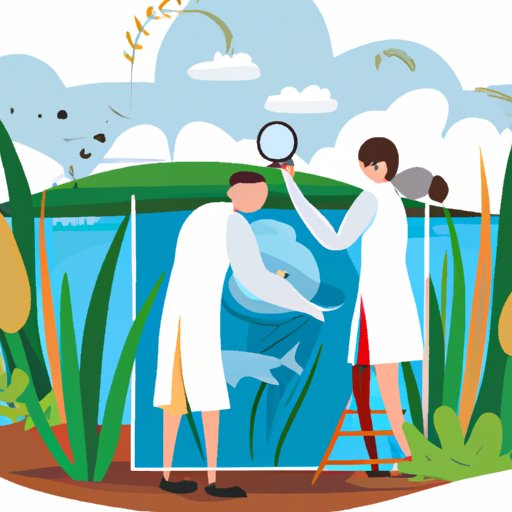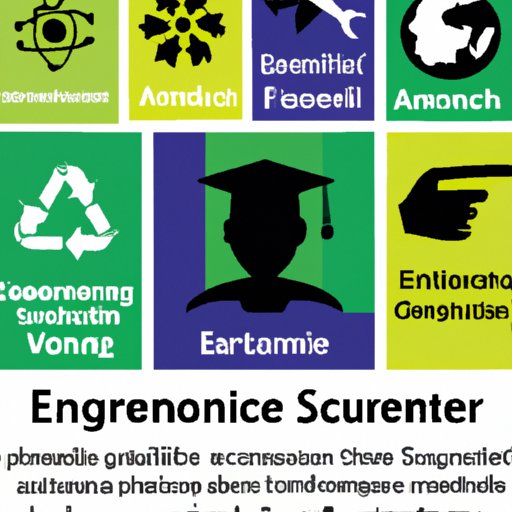Introduction
Environmental science is a field of study that focuses on the interaction between humans and their environment, including the physical and biological components of the natural world. Many individuals who pursue a degree in environmental science have a passion for protecting the planet, which makes them well-suited to pursue a career in this field. An environmental science degree can open doors to a variety of job opportunities, from consulting and research to policy development and advocacy. In this article, we will explore the benefits of pursuing a career in environmental science and discuss how to prepare for a successful career.

Exploring the Benefits of an Environmental Science Degree in the Workplace
Environmental science is a broad field that encompasses many disciplines, including biology, chemistry, geology, physics, and mathematics. With an environmental science degree, graduates gain the knowledge and skills necessary to understand the complex interactions between humans and their environment. This knowledge can be applied to real-world problems, such as climate change, air and water pollution, and land management. Additionally, an environmental science degree provides students with the opportunity to develop important skills, including critical thinking, problem solving, data analysis, and communication.

The Role of Environmental Scientists in Conservation and Sustainability
Environmental scientists play a key role in conservation and sustainability efforts. They are responsible for assessing the impacts of human activity on the environment and developing sustainable solutions. This includes analyzing data and conducting research to identify potential environmental risks and recommending strategies to reduce or eliminate these risks. Additionally, environmental scientists advocate for environmental protection by raising awareness of environmental issues and educating the public about the importance of conservation and sustainability.
How to Prepare for a Career in Environmental Science
In order to pursue a career in environmental science, individuals must obtain the appropriate education and training. Most environmental science jobs require at least a bachelor’s degree in environmental science or a related field. Additionally, many employers prefer candidates who have additional certifications or specialized experience. It is also important to build professional networks and gain practical experience through internships or volunteer positions. This will help individuals gain a better understanding of the field and demonstrate their commitment to environmental protection.

Interviewing Successful Professionals with an Environmental Science Degree
To gain further insight into the career prospects available with an environmental science degree, it is beneficial to speak with professionals who have already achieved success in the field. Interviewing professionals can provide valuable advice on how to best prepare for a career in environmental science. When identifying potential interviewees, look for individuals who have relevant experience and expertise in the field. Once you have identified a few potential interviewees, reach out and ask if they would be interested in being interviewed. Be sure to include a list of questions and topics that you would like to discuss during the interview.
Conclusion
An environmental science degree provides graduates with the opportunity to pursue a wide range of careers, from consulting and research to policy development and advocacy. With an environmental science degree, professionals can make a meaningful impact on the world by assessing environmental impacts, developing sustainable solutions, and advocating for environmental protection. To prepare for a successful career in environmental science, individuals must obtain the appropriate education and training, build professional networks, and gain practical experience. Additionally, speaking with successful professionals can provide valuable insight into the job prospects available with an environmental science degree.
(Note: Is this article not meeting your expectations? Do you have knowledge or insights to share? Unlock new opportunities and expand your reach by joining our authors team. Click Registration to join us and share your expertise with our readers.)
